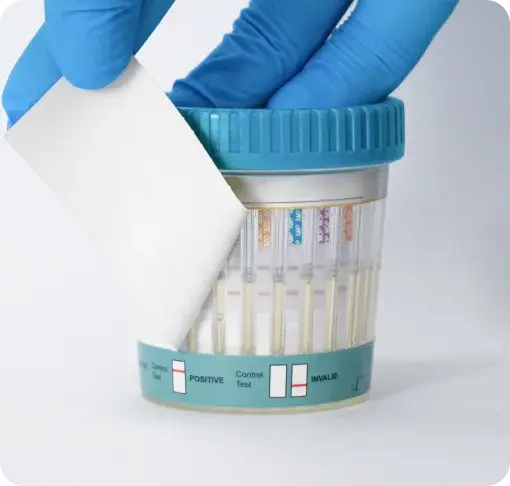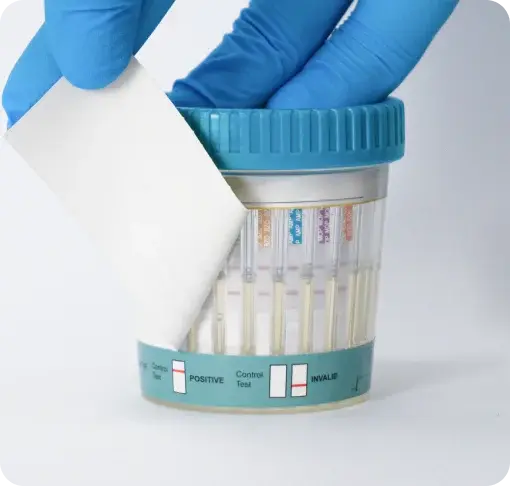Enhancing Accuracy and Reliability in Initial Drug Test Results
In the realm of drug screening, especially in contexts like employment and healthcare, the accuracy of test results is paramount. Whilst initial ‘Point of Care’ screenings provide quick results, they are not foolproof, as certain medications and even foods can impact a test result.
This is where secondary laboratory confirmatory testing comes in, employing methods like liquid chromatography-mass spectrometry-mass spectrometry (LC-MS/MS) to determine if non-negatives are actually positive.
The Need for Confirmatory Testing
Point-of-care tests, though efficient, can sometimes yield false non-negative results due to cross-reactivity with other substances. These results, while indicative of the presence of certain drug metabolites, are not conclusive. In such scenarios, a non-negative result necessitates a more thorough and precise examination, which is provided by confirmatory testing in a laboratory.
A non-negative initial result could arise from a variety of situations and can often create more questions than answers. For example, it could be due to the individual’s legitimate use of prescription medication, consumption of certain foods, or use of common over-the-counter drugs. Each of these scenarios can produce results that mimic the presence of illegal or controlled substances, highlighting the need for a secondary, more discerning level of testing.
Secondary laboratory testing uses advanced techniques like LC-MS/MS, which are highly specific and sensitive. This technology can accurately identify and quantify substances, distinguishing between similar compounds and ensuring that the results are not falsely influenced by other substances. This level of detail is vital in differentiating true drug presence from false positives caused by unrelated compounds.
Real-World Implications
The implications of accurate drug testing are significant. In the workplace, it impacts employee hiring, retention, and legal compliance. In healthcare, it guides patient care and treatment decisions. False positives can lead to unjust consequences, making confirmatory testing not just a scientific necessity but also a matter of ethical responsibility.
Conclusion
Secondary laboratory confirmatory testing is an indispensable aspect of modern drug screening practices. It stands as a gatekeeper of accuracy, ensuring that every positive result is indeed valid, and every individual's test result is treated with the utmost fairness and scientific rigour.
Explore Laboratory Services

